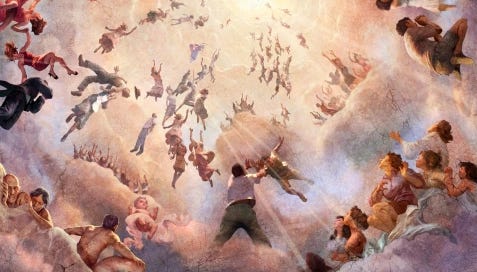Is There a Rapture in 1 Thessalonians 4:13-18?
The Twenty-Fourth Sunday after Pentecost
Scripture (semicontinuous)
Old Testament: Joshua 24:1-3a, 14-25
Psalter: Psalm 78:1-7
Epistle: 1 Thessalonians 4:13-18
Gospel: Matthew 25:1-13
Scripture (complementary)
Old Testament: Wisdom 6:12-16
Psalter: Amos 5:18-24
Epistle: 1 Thessalonians 4:13-18
Gospel: Matthew 25:1-13
___
Prayer
You let us choose, O God, between you and the false gods of this world. In the…
Keep reading with a 7-day free trial
Subscribe to Faith Seeking Understanding to keep reading this post and get 7 days of free access to the full post archives.




